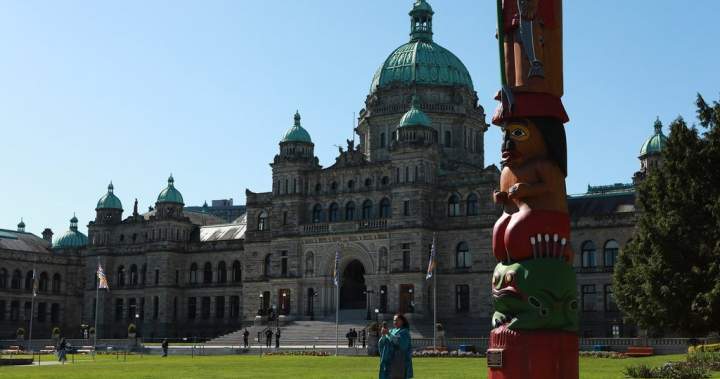A new poll has found that Canadians are divided on Indigenous rights.
The poll, commissioned by the Angus Reid Institute, found that while a slight majority of Canadians feel that Indigenous Peoples have a unique status in Canada (55 per cent), and the vast majority of Indigenous-identifying individuals agree (68 per cent), others push back (45 per cent), saying Indigenous Peoples should have the same status as others living in modern Canada, including two in three Conservative party voters (68 pre cent).
“I would say, we’re asking Canadians whether or not they felt to, take kind of two sides or one of two sides on a couple of different statements,” Jon Roe, research associate at the Angus Reid Institute, told Global News.
“So whether or not they believe that Indigenous Peoples have an inherently unique status or whether they should not have a special status that other Canadians have.”
The poll found that most Canadians are divided on many of the issues.
Three in 10 of those polled said that the federal government is offering too much funding to First Nations communities, but the same number, 27 per cent, felt the current funding is too little.
One in five, 21 per cent, of those polled said that based on what they know, the funding level is about right.
“On the issue of whether or not they should be integrating more into broader Canadian society, 45 per cent said yeah, Indigenous people should be doing that, but there are more Canadians who say that they should strengthen their own culture and traditions at 55 per cent,” Roe said.
Get daily National news
Get the day’s top news, political, economic, and current affairs headlines, delivered to your inbox once a day.
“But when it comes to the idea of moving towards more independence and control of their own affairs, 40 per cent of Canadians say that, whereas 60 per cent say they want them to be Indigenous Peoples, to be governed by the same systems and rules as other Canadians.”
Terry Teegee, Regional Chief of the British Columbia Assembly of First Nations, said he found the poll disappointing.
“I’m not surprised that this is coming from the right and from a Conservative point of view,” he said.
“Matter of fact, I think it’s creating more harm than good.”
Teegee said that First Nations people lead the statistics on many social issues, including housing and addiction, and those need to be addressed.
“When you bring in a poll that looks at the funding that we receive, there’s not enough information to make an informed decision by any person in the public, or whether they’re Conservative or otherwise,” he said.
“There’s a lot of information missing in terms of these types of polls, and it makes it look like that First Nations are really not reporting on the funding we received, that we’re not doing the work that we’re supposed to be doing, it’s creating more harm than good. And, you know, this creates problems.”
When asked whether their province is giving too much attention to Indigenous communities, an average of 24 per cent in the country said yes, but that number climbed to 37 per cent in B.C.
“It is a bit higher of people saying maybe they do spend more time here than other parts of the country,” Roe said.
Teegee said there are many assumptions about Indigenous Peoples across Canada
“I think that it’s very harmful to many First Nations and Indigenous Peoples here in British Columbia because it really stokes the fire of racism in terms of looking at the First Nations here in B.C.,” he said.
“What should be addressed here is education, the understanding of many First Nations of what we experience in this day and age.”
Methodology:
The Angus Reid Institute conducted an online survey from July 24 – 29, 2025, among a randomized sample of 2,508 Canadian adults who are members of Angus Reid Forum. The sample was weighted to be representative of adults nationwide according to region, gender, age, household income, and education, based on the Canadian census. For comparison purposes only, a probability sample of this size would carry a margin of error of +/- 1.5 percentage points, 19 times out of 20. Discrepancies in or between totals are due to rounding. The survey was self-commissioned and paid for by ARI.
© 2025 Global News, a division of Corus Entertainment Inc.
Canadians divided on Indigenous rights in what B.C. leader calls ‘harmful’ poll


